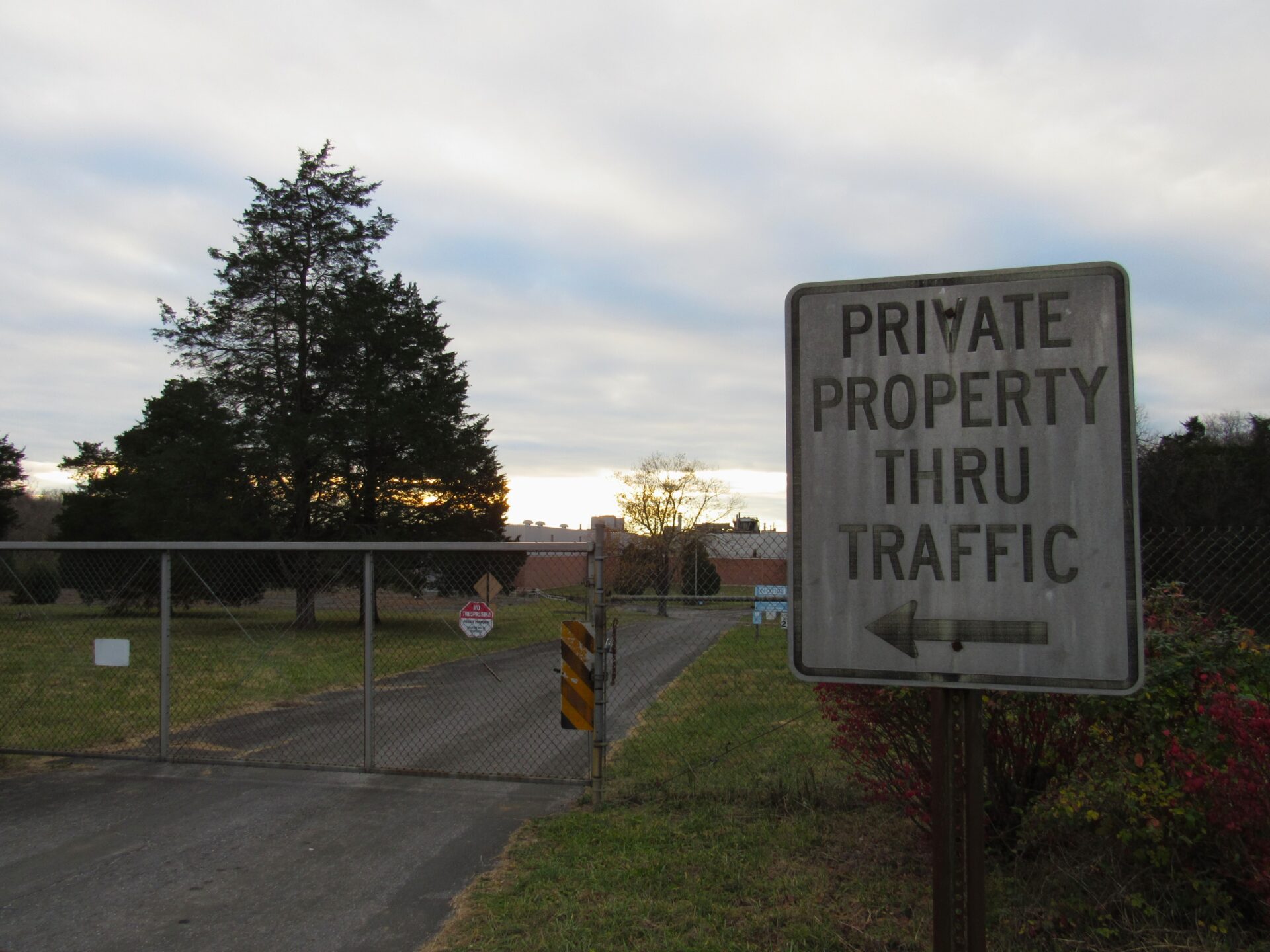Updated on Thursday, December 19 at 8:50 a.m.
A water bottling plant proposed for the historic Jefferson County community of Middleway is still awaiting formal approval or rejection from local officials. But a new circuit court decision means uncertainty over the project will continue into the new year.
On Monday, West Virginia’s 23rd Judicial Circuit Court granted an injunction that postponed a Jefferson County Planning Commission hearing for the project.
The Dec. 17 meeting, formally dubbed a “public workshop,” would have allowed the commission to review a revised plan for the Mountain Pure Water Bottling Facility. The project was first proposed in November by representatives for California-based Sidewinder Enterprises.
The court decision comes in response to a legal complaint filed by the Jefferson County Foundation, a local environmental and historic preservation nonprofit. The organization has previously expressed concern about the toll the project would take on local water resources and traffic.
Under Jefferson County land development regulations, the planning commission is required to undertake a 45-day review period for concept plans before formally assessing their contents.
But this week’s ad hoc, special hearing would have come just 35 days after the initial Nov. 12 hearing, and 29 days after the company submitted its revised concept plan on Nov. 18.
The complaint — shared with West Virginia Public Broadcasting by the foundation — argues that holding a “premature, end-of-year, special hearing” would deprive government agencies and the public time for “their due process right to be heard.”
“It would really hinder the ability of the agencies and the public… to review and comment,” said Christine Wimer, the foundation’s president. “We became pretty concerned about this public workshop being a meaningful opportunity for the public to be heard.”
Wimer said her organization reached out to the planning commission directly to request the meeting be rescheduled, but that the foundation pursued legal recourse because the commission did not agree to the delay.
“The government has to engage the people, and the people have to have a meaningful opportunity to engage,” Wimer said, adding that community members should be able to “evaluate” and “seek clarity” on a concept plan before speaking on it publicly.
Photo Credit: Jack Walker/West Virginia Public Broadcasting
Ultimately, Circuit Court Judge David Hammer agreed with the foundation’s legal claim, granting an injunction that postponed review of the current Mountain Pure concept plan.
According to the planning commission’s 2025 meeting schedule, that means the next regular meeting when commissioners would be eligible to review the plan is Feb. 11, roughly two months from now.
Sean Masterson, a management partner for Sidewinder, is helping lead the Mountain Pure project. In an email statement he provided to West Virginia Public Broadcasting through a media representative, Masterson described the postponement as an “opportunity” to talk to community members about their concerns.
“Our team looks forward to participating in additional dialogue on issues of importance concerning key technical and specific project details,” he wrote.
Masterson added that his team has commissioned an economic impact study for the project, which he plans to share with members of the public.
Meanwhile, some community members who oppose the project due to environmental, safety and historic preservation concerns regard the postponement as a win.
Jessie Norris is a Middleway resident and organizer for Protect Middleway, a grassroots local watchdog group calling for the Mountain Pure concept plan to be rejected or reformed. In a message to West Virginia Public Broadcasting, she expressed gratitude that the local community will have more time to review Sidewinder’s proposal.
“The postponement to Feb. 11 provides an opportunity for continued dialogue, advocacy and thoughtful preparation,” she wrote on behalf of Protect Middleway.
The proposed bottling plant would be built atop a former manufacturing site roughly half a mile from Middleway’s historic downtown. Under its current concept plan, a one-million-square-foot facility there would extract and bottle local groundwater.
Some residents have expressed concern that the project could cause toxic runoff, because chemicals were detected beneath the site in a 2018 geological report. Representatives for the project have denied these claims.
During subsequent planning commission meetings, members of the public will be eligible to address the commissioners for three minutes each during the public comment period, and can express their thoughts on the project.
Norris added that Protect Middleway looks forward to continuing its “advocacy efforts” after the holiday season.
“This additional time allows us to reflect on what makes Middleway so special — a village that has been lovingly sustained for centuries by those who call it home,” she wrote.
**Editor’s Note: This story was updated to include a written comment from Sidewinder Enterprises.
